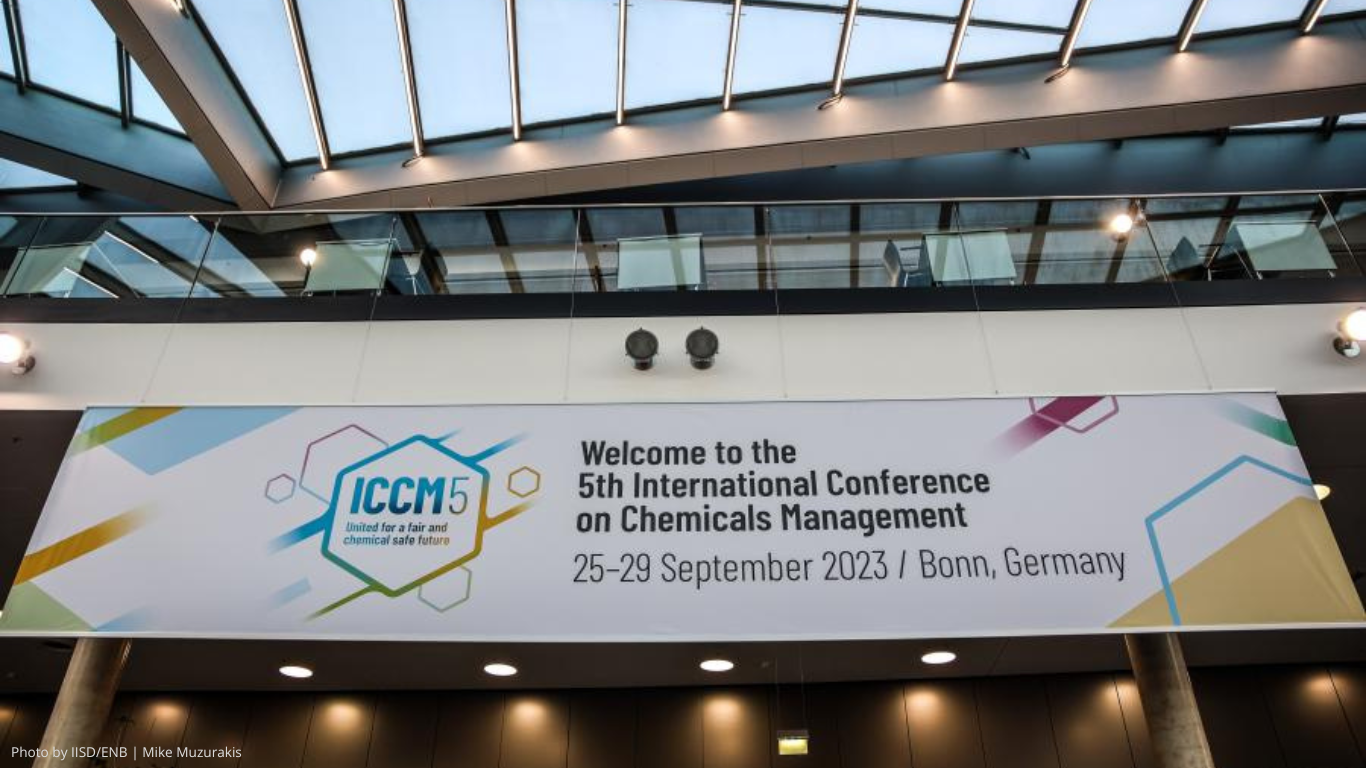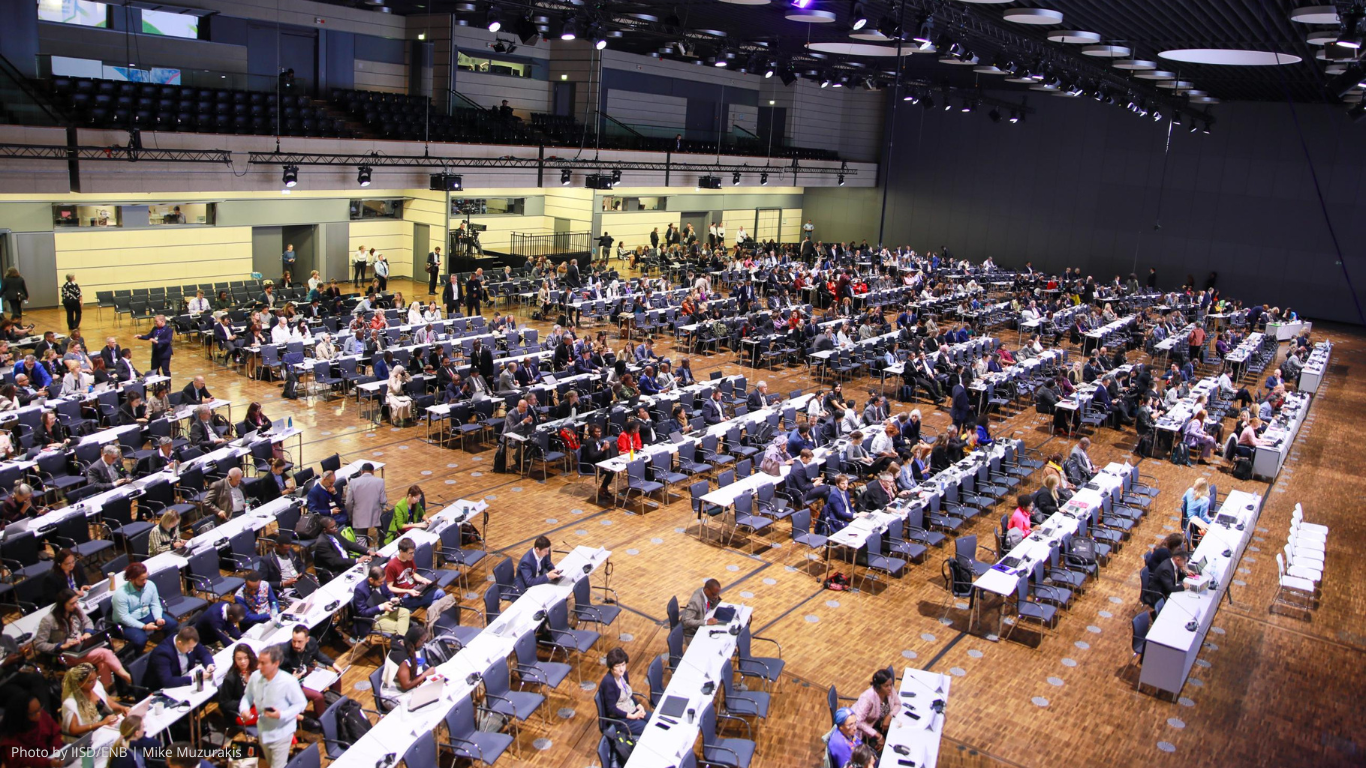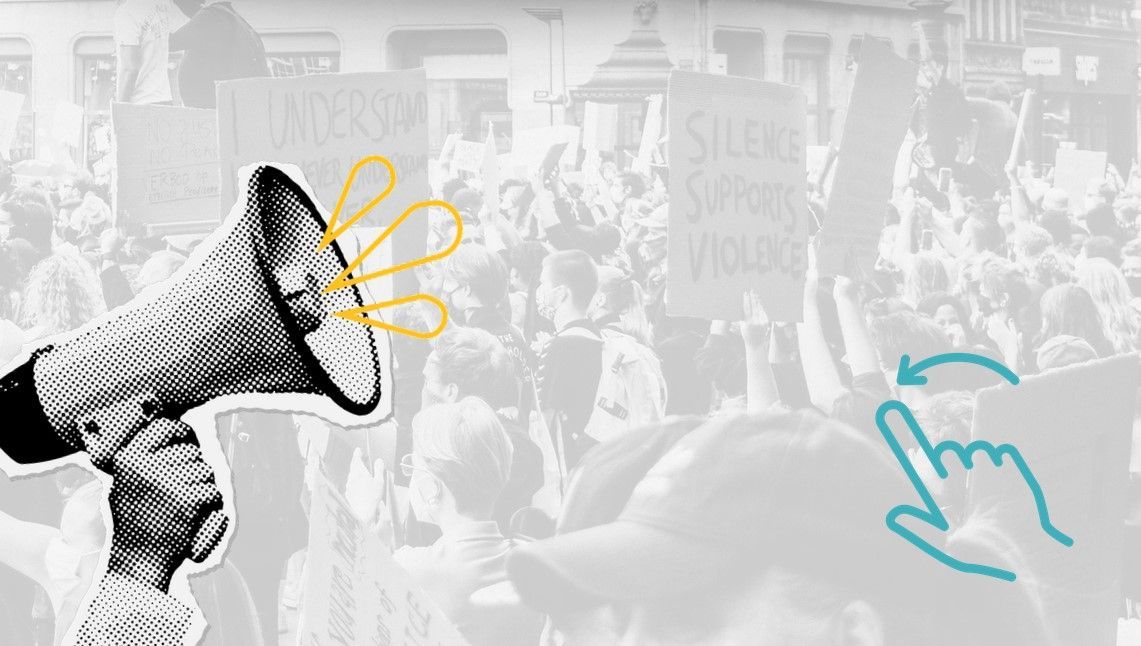CCB welcomes a new Global Framework on Chemicals

September 2023 - Representatives of the Coalition Clean Baltic, including the Swedish Society for Nature Conservation (Sweden), BUND (Germany), and Hazardous Substances Working Area Leader have participated in the fifth International Conference on Chemicals Management (ICCM5), and associated meetings, which took place on 20-29 of September in Bonn, Germany.
ICCM is the leading UN multi-stakeholder, and multi-sectoral body responsible for steering of the strategic international chemicals management. Most importantly, the UN Conference adopted a comprehensive Global Framework on Chemicals that sets concrete targets and guidelines for key sectors across the entire lifecycle of chemicals.
This framework provides a vision for a planet free of harm from chemicals and waste, for a safe, healthy and sustainable future – and is an important part of the wider group of agreements, such as the Sustainable Development Goals, the Kunming-Montreal Global Biodiversity Framework and the global treaty on plastic pollution under negotiation.
Based around 28 targets, the Global Framework outlines a roadmap for countries and stakeholders to collaboratively address the lifecycle of chemicals, including products and waste. According to ENB, the 12-part Framework, its three annexes, and the accompanying 12 resolutions “provide a rationale, targets, and actions to ensure that a broad cross-section of stakeholders from governments, international technical agencies, civil society, and the private sector can collaborate” on such issues as:
- phasing out the most harmful chemicals;
- strengthening capacity building, particularly for countries with weak enforcement regimes; and
- creating better linkages across diverse sectors, including health and occupational safety, trade, agriculture, energy, and transport.
The negotiating process was unique in that representatives from governments, the private sector, non-governmental and intergovernmental organizations, and academia participated at the same level.

Governments have committed to creating, by 2030, the regulatory environment to reduce chemical pollution and implement policies to promote safer alternatives. Industry has committed to managing chemicals in a way that reduces chemical pollution and adverse impacts by 2030. The framework calls for, by 2035, a phase out of highly hazardous pesticides in agriculture where the risks have not been managed and safer alternatives are available. There is a target on strengthening links between the new instrument and the climate, biodiversity, human rights and health agendas.
Crucially, an integrated approach to financing was agreed, with private sector financing lining up with the targets of the agreement. A dedicated trust fund will be set up and managed by the United Nations Environment Programme. Into this fund, governments, the private sector, non-governmental organizations and foundations can add to an initial EUR 20 million pledged by Germany.
“We at CCB are happy that a multi-year negotiations process of development of the new global chemicals instrument has finally concluded with adoption of the historic decision to establish the “Global Framework on Chemicals – For a planet free of harm from chemicals and waste.” We believe that it sends quite a strong political signal to all stakeholders - we have to act quickly and in a coordinated way in order to prevent harm, caused by chemicals production and use throughout the lifecycle, and to achieve a sustainable chemicals management”, said Eugeniy Lobanov, CCB Hazardous Substances Working Area Leader. “The Baltic Sea region shall be among leaders in implementation of the Framework, and in arranging support to developing countries in addressing their challenges regarding chemicals management”, continued.

In addition, ICCM5 launched a Global Alliance on Highly Hazardous Pesticides, as well as a process for creating implementation programmes for the new Framework that should result in new sector-focused initiatives involving key heavy users of chemicals, such as the textile and construction sectors.
***
Article written by Eugeniy Lobanov, CCB Hazardous Substances Working Area Leader
More information:
- Earth Negotiations Bulletin, Summary report ICCM 5 and IP4.3, ENB/IISD
- Historic Global Framework on Chemicals Adopted Following Years of Talks, IISD SDH Knowledge Hub
- UNEP welcomes new Global Framework on Chemicals, UNEP
- New UN framework to protect environment from harmful chemicals, UN News

